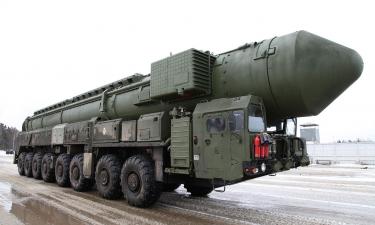Russian People's Expressive Silence
Moscow's Kremlin may be looking to appoint Russia's regional governors soon, if indicators from the election to appoint a new St. Petersburg leader are any guide. The move would further consolidate President Putin's centralisation of power.
A poster supporting Putin-supported Valentina Matviyenko told voters of Russia's northern capital to "confirm your choice," claiming "majority" support. It should have been removed on Friday night before the elections, since Russian election law prohibits what's viewed as public agitation on voting day. But the offending article stayed up as candidates kept on campaigning
"Independent" news media, law-enforcement agencies, electoral committees, other candidacies and their associates - even the voters - could hardly have cared less, it seems: probably a reason to nullify the first stage of polling and not to run a second stage at all.
But as experience shows, Russian democrats are not that bothered with observing the laws they've made, not to mention concern about their morality. Around 87 percent of the electorate recorded no confidence in any candidacy and analysts question the lawfulness of the poll.
The situation is absurd from the legal point of view, but it is absolutely real in democratic and political games. Russian elections have another aspect, too. Seventy-one percent of registered candidates (save for cadets and others in the military) shunned the polls. People kept their silence, but the silence is deafening. It is not indifference, it is non-recognition.
If people kept quiet in protest 20 years ago during solemn Soviet proclamations, it would have been considered blatantly anti-Soviet. This poll's low turnout is a democratic demonstration.
Politicians slamed electors for their dismisssal of the political process. But others lauded the political inertia.
The notion of federal authorities appointing Federation chiefs is not new. Spokesman for the presidential administration Dmitry Kozak says several Russian regions may be charged with default, and deprived of control over assigned federal income, subventions and subsidies.
Kozak has a committee looking to introduce external control for insolvent regions. This would mean incentives to seek their own funds and look to stopping governors from blackmailing the government. Regions unable to deliver their responsibities may ask for help from the federal center, however. Russian law already provides for dismissals of governors failing prescribed obligations.
St. Petersburg's elections may be a pointer to new policy.
Igor Pridorogin
Subscribe to Pravda.Ru Telegram channel, Facebook, RSS!





